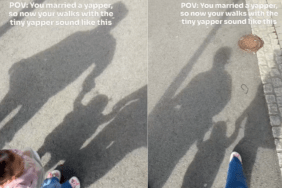
These days, it seems like everyone’s got their own blog. Whether you're a professional, a celebrity wannabe, or a teenager seeking an identity, blogging is supposed to be the next great way to get noticed.
But what if you’re a parent? You certainly didn’t grow up with blogs, and naturally you may have some questions about your child’s involvement in this new medium.
As a family psychologist, I get these questions a lot. As a preteen or teenager going through life’s normal growth stages, blogging can be very helpful indeed – fostering a social network (even if it is virtual), or providing an outlet for everyday frustrations. But as with any internet enterprise, blogs do raise some parental concerns. So let’s address some basic blogging pros and cons.
CONS
1. The “Me” Attitude
It’s an understatement to say that reality TV has given us an insider view into the lives of so many. We grant “everyday” people unnatural amounts of attention when we tune in each week. Similarly, does your child want to be in the spotlight?
We all want to feel important. The idea that millions of people may be logging on to read what your child has written can create a heightened sense of importance. What I have noticed in a fair amount of the kids in today's culture is that they have an increased sense of entitlement and tend to act arrogantly, feeling that they are above others. If this is an issue with your child, recognize that entitlement can be replaced with healthy self-respect. Examine your own behavior, and talk to your child about their attitudes toward him or herself. You may find that your child’s grandstanding blog compensates for other areas in life where he or she feels very insecure.
2. Internet Bullying
Just like real-life bullying, blogs can become a haven for internet bullies. It’s often easier to be really nasty on the other side of a computer screen, and kids may blog to demean or humiliate others. If your child is a victim of internet bullying, or an internet bully him or herself, address the issue immediately. Make sure your child understands the wisdom of respecting other people, even if he or she doesn’t feel respected by what somebody has done to them.
3. Misinformation
While some blogs can be educational or informational, many times the accuracy of information isn’t checked. Children often don't discern between what is opinion and what is fact, and it may be easy for them to be swayed by the content of blogs. The more you maintain open communication with your kids, the more likely they are to talk to you if they have a question about something they’ve read. And remember, you can always ask them what they have been learning from blogs. If necessary, gently ask for the sources of their information, and help them understand the difference between information that is backed up by reliable sources and those that are not.
4. Online Predators
Blogs may provide some questionable people the ability to make connections with your kids. It is not possible to know who is often writing these blogs, and therefore one cannot be sure of the motivations of individuals who are writing them. While I would not want you to live in fear of what your kids are doing and who they are talking to, it is prudent to take a look at their online community. Give them the space to have some privacy, but know that they also need guidance and/or your supervision in discerning who may be safe and unsafe to talk to.
PROS
1. The Art of “Blogger-sation”
Blogs can be extremely useful in increasing your child’s writing ability. In school your kids may often not feel as they want to express themselves, and blogs can be a very liberating format for written self-expression.
Do know however that blogs can also be used as a tool to avoid face-to-face communication. The more that we rely on communicating through computers, the more we risk decreasing our ability to interact with others directly in relationships. So encourage your kids to write, but also encourage them to talk to you.
2. Establishing Independence
This too has some pro and con to it also. Teens and kids react against controls, and blogging may be a way to assert their independence. Many teens are seeking places on the internet with fewer rules and regulations. Despite the best internet safeguards you put into place, some kids will rebel. Realize that you can contribute to this environment of control, or help change the way they view themselves and society.
Become a better guide to your kids, and less of their boss. Encouraging them to be a responsible blogger is a great step. Rather than tell your child what they can or can't do on a blog, help him or her to see all they are capable of: exploring their creativity, relaxing, releasing frustration, etc. – all through the written word.
3. Teachable Moments
As a parent, you can use the blogging experience as a teaching and talking point. Since you can’t always be there to manage your kids’ choices, use their blogging as a way to help them express themselves responsibly. Take a look at some of the blogs out there with your kids. Look at informational blogs, educational blogs, and even the less “productive” blogs – i.e., personal rants. Talk about these with your kids and help them to understand the ins and outs of productive communication.
4. Join Forces
If you do blogging yourself, allow your child to take a look at what you write. This will help you become a model for internet accountability. Be willing to live by the same rules you ask your kids to live by. I will never forget the story about a parent who had a page on MySpace and advertised themselves as being single and no kids, when in fact they were married and had kids, and the kids had profiles on MySpace also!
It would have been very easy to find their parent if they'd just entered their name. If you demonstrate poor judgment, you have very little room when guiding your child’s behaviors. So become a better blogger, and watch your child follow your lead.
While internet blogging is still in its infancy, it’s safe to say it’s going to be here for a while. So if and when your child explores blogging, be proactive and get educated. The more you know about this medium, the better you can guide your child to make safe choices.
About the author: Erik Fisher, PhD, aka Dr. E…, is a licensed psychologist and author who has been featured on NBC, CBS, FOX and CNN. Visit him at www.ErikFisher.com to learn more








